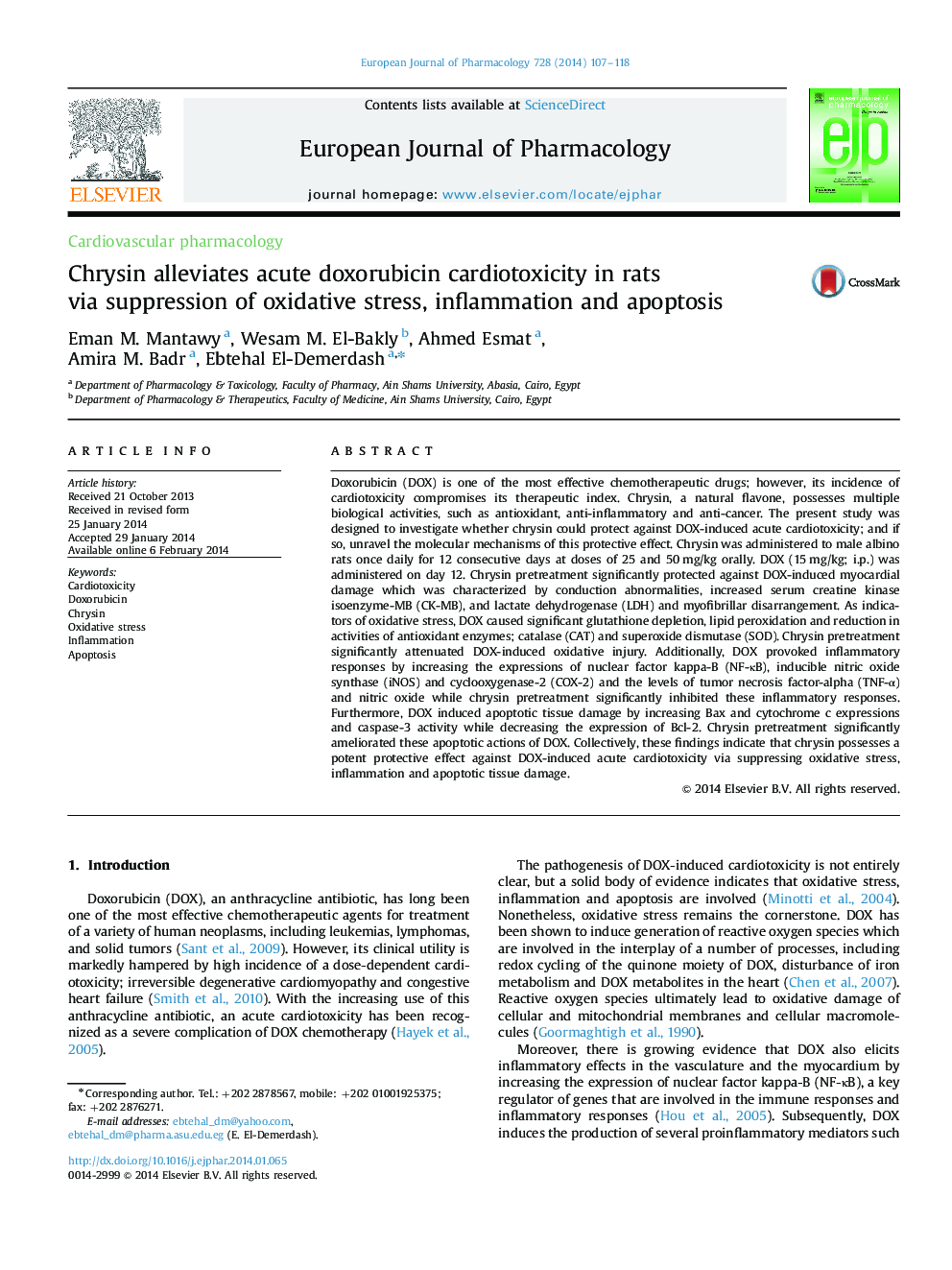| Article ID | Journal | Published Year | Pages | File Type |
|---|---|---|---|---|
| 2531847 | European Journal of Pharmacology | 2014 | 12 Pages |
Doxorubicin (DOX) is one of the most effective chemotherapeutic drugs; however, its incidence of cardiotoxicity compromises its therapeutic index. Chrysin, a natural flavone, possesses multiple biological activities, such as antioxidant, anti-inflammatory and anti-cancer. The present study was designed to investigate whether chrysin could protect against DOX-induced acute cardiotoxicity; and if so, unravel the molecular mechanisms of this protective effect. Chrysin was administered to male albino rats once daily for 12 consecutive days at doses of 25 and 50 mg/kg orally. DOX (15 mg/kg; i.p.) was administered on day 12. Chrysin pretreatment significantly protected against DOX-induced myocardial damage which was characterized by conduction abnormalities, increased serum creatine kinase isoenzyme-MB (CK-MB), and lactate dehydrogenase (LDH) and myofibrillar disarrangement. As indicators of oxidative stress, DOX caused significant glutathione depletion, lipid peroxidation and reduction in activities of antioxidant enzymes; catalase (CAT) and superoxide dismutase (SOD). Chrysin pretreatment significantly attenuated DOX-induced oxidative injury. Additionally, DOX provoked inflammatory responses by increasing the expressions of nuclear factor kappa-B (NF-κB), inducible nitric oxide synthase (iNOS) and cyclooxygenase-2 (COX-2) and the levels of tumor necrosis factor-alpha (TNF-α) and nitric oxide while chrysin pretreatment significantly inhibited these inflammatory responses. Furthermore, DOX induced apoptotic tissue damage by increasing Bax and cytochrome c expressions and caspase-3 activity while decreasing the expression of Bcl-2. Chrysin pretreatment significantly ameliorated these apoptotic actions of DOX. Collectively, these findings indicate that chrysin possesses a potent protective effect against DOX-induced acute cardiotoxicity via suppressing oxidative stress, inflammation and apoptotic tissue damage.
